Basic and Translational Research - Faculty
Professor
Clinical Director for Renal at UCH and Associate Division Head for Clinical Affairs 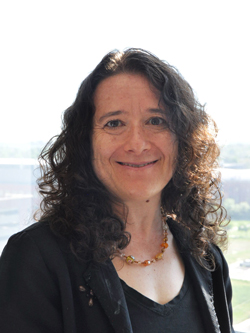
Medical Director, Fresenius South Denver Dialysis Unit
Dr. Blaine focuses her research on podocytes, which are key components of the kidney filtration barrier. Her lab studies how podocytes handle serum proteins such as albumin and IgG and how these processes are disrupted in proteinuric kidney disease. Her research also investigates how podocytes handle immune complexes and the interactions between podocytes and immune mediators in glomerulonephritis. In understanding these processes, Dr. Blaine hopes to develop targeted therapies to treat proteinuria and immune-mediated kidney diseases.
Charles Edelstein, MD, PhD
Professor 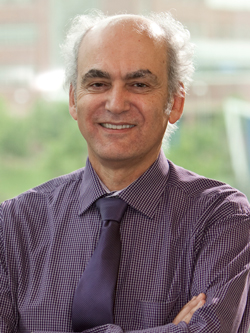
Through his Department of Veterans Affairs Merit Award, Dr. Edelstein investigated the pathophysiology of cisplatin-induced acute kidney injury (AKI) in a clinically relevant model of mice with cancer. In his renewed VA Merit award, he will study the role of autophagy in polycystic kidney disease. Through his industry and Department of Defense-funded grants, Dr. Edelstein investigates the mammalian target of rapamycin signaling and autophagy in rodent models of polycystic kidney disease (PKD). He is the principal investigator on numerous clinical studies in patients with PKD and is interested in biomarkers of AKI, having edited a book on biomarkers in kidney diseases. Dr. Edelstein does inpatient attending at both the VA and University Hospitals and has a weekly clinic at the University Hospital that specializes in PKD.
Seth Furgeson, MD
Associate Professor 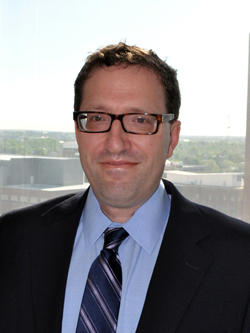
Dr. Furgeson studies signaling pathways that regulate renal fibrosis and chronic kidney disease. Clinically, Dr. Furgeson cares for chronic hemodialysis and peritoneal dialysis patients at Denver Health Medical Center (Denver Health). He is also an inpatient attending on the Nephrology Consult Services at Denver Health.
Gabriela Garcia, MD
Associate Professor 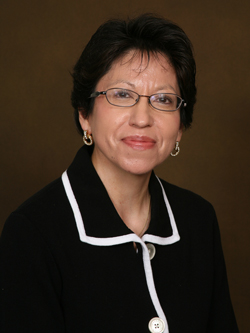
Dr. Garcia’s primary research interest is in identifying mediators that drive inflammation and endogenous factors that regulate counter anti-inflammatory processes in the kidney. Inflammation has an important role in the development and progression of most chronic kidney diseases, yet understanding and preventing inflammation and progressive fibrosis of the kidney remain unsolved challenges that Dr. Garcia hopes to influence through her work.
Clinical Profile
Katharina Hopp, PhD
Associate Professor 
Dr. Hopp attempts to understand, through her research, the underlying pathomechanisms driving autosomal dominant polycystic kidney disease progression. Specifically, she investigates genetic mechanisms driving phenotypic heterogeneity amongst patients by studying different murine models and by sequencing human samples. She also studies the renal cystic microenvironment to better understand the role of immune cells in ADPKD pathogenesis. Through this research, Dr. Hopp aims to identify novel pathways that can be translated into either pre-clinical or clinical trials geared to alleviate disease burden.
Clinical Profile
Alkesh Jani, MD
Professor 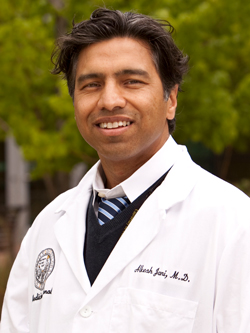
VA Renal Section Chief
Dr. Jani attends at both the University of Colorado and VA Hospitals and is funded by the VA to study the prevention of ischemic delayed graft function in a mouse kidney transplant model. Dr. Jani is interested in understanding, through research, the ways in which hibernating mammals are protected from prolonged cold ischemia/warm reperfusion.
Richard Johnson, MD
Professor Emeritus 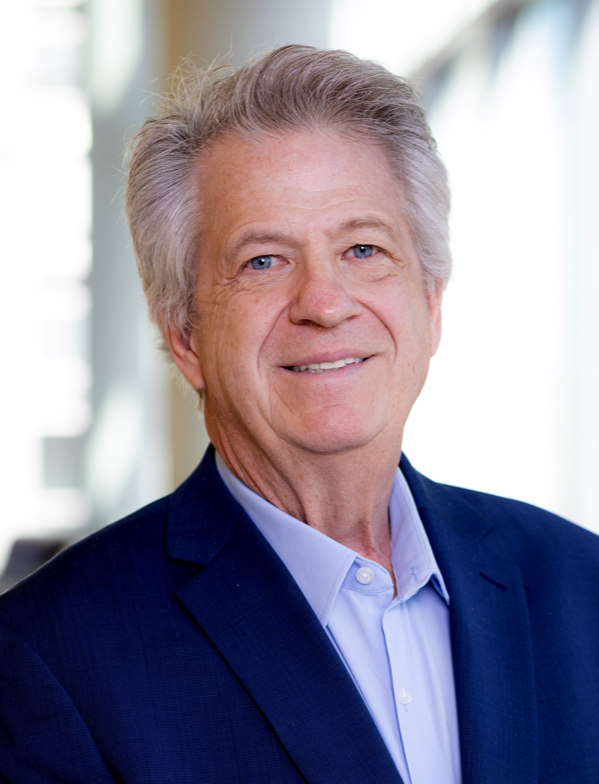
Dr. Johnson is active in both basic and clinical research as well as education. Dr. Johnson’s research has focused on a wide range of topics, including mechanisms involved in kidney injury from diabetes and chronic kidney disease, the role of heat stress and climate change in the pathogenesis of Mesoamerican Nephropathy, and the role of uric acid in acute and chronic kidney disease. He also has a longstanding interest in the pathogenesis of metabolic syndrome, diabetes, and hypertension, and his work has focused on the role of sugar (fructose) and uric acid, which is a metabolite of fructose. He also has studied the pathogenesis of nephrotic syndrome, especially minimal change disease, and the role of autoimmunity in kidney disease and primary hypertension. He is an avid writer (>500 publications), founding editor of the textbook Comprehensive Clinical Nephrology, and also has several books that he has authored for the general public (most notably, the Fat Switch, Mercola.com, 2012).
Makoto Miyazaki, PhD
Professor 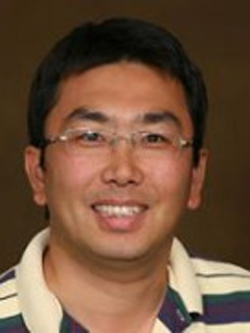
Cardiovascular complications, such as vascular calcification, are the leading cause of death in patients with chronic kidney disease (CKD). Dr. Miyazaki, through his research, attempts to understand the molecular mechanism for the development of vascular calcification and to identify a novel target for treatment of CKD-dependent vascular diseases.
Clinical Profile
John Montford, MD
Associate Professor 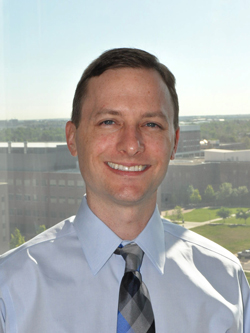
Dr. Montford’s research explores novel immune pathways regulating CKD progression. He devotes his clinical time to the VA Eastern Colorado Health System and manages a population of chronic dialysis patients in the Denver Metro Area; he also maintains an active basic science laboratory at the Anschutz Medical Campus along with Dr. Seth Furgeson. Dr. Montford is actively involved in medical student, house staff, and fellow education by teaching formal coursework and clinical education at the Anschutz Medical campus hospitals and clinics.
Raphael A. Nemenoff, PhD
Professor 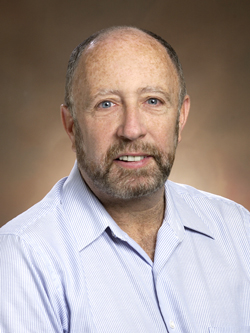
Raphael Nemenoff is currently the Director of Basic Research in the Division of Renal Diseases and Hypertension. His laboratory is focused on the role of the microenvironment in mediating disease progression, focusing on inflammatory and immune pathways. We are currently examining this in a model of lung cancer progression, as well as in polycystic kidney disease. In addition to analyzing cell populations, we are performing functional genomic screens in both projects to identify specific genes and pathways regulating progression. He is involved in both the Pharmacology and Cancer Biology Training Programs and is on the Steering committee for both programs. He has trained over 25 Fellows and currently has 3 students doing their PhD thesis in his lab.
Clinical Profile
Carlos Roncal
Associate Professor 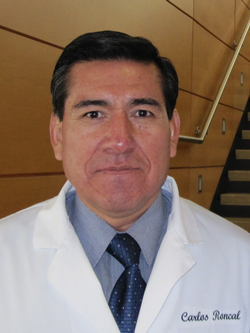
As a part of his research, Mr. Roncal applies a dehydration model to mice in order to investigate the effects of dehydration on kidney function. He also studies the role of fructokinase for the potential regulation of vasopressin, the effects of uric acid in type-two diabetic nephropathy, and the ways in which fructose and uric acid may affect metabolic syndrome and renal disease in animal models. Mr. Roncal mentors professional research assistants and fellows in the Anschutz Medical Campus labs.
Clinical Profile
Joshua Thurman, MD
Professor 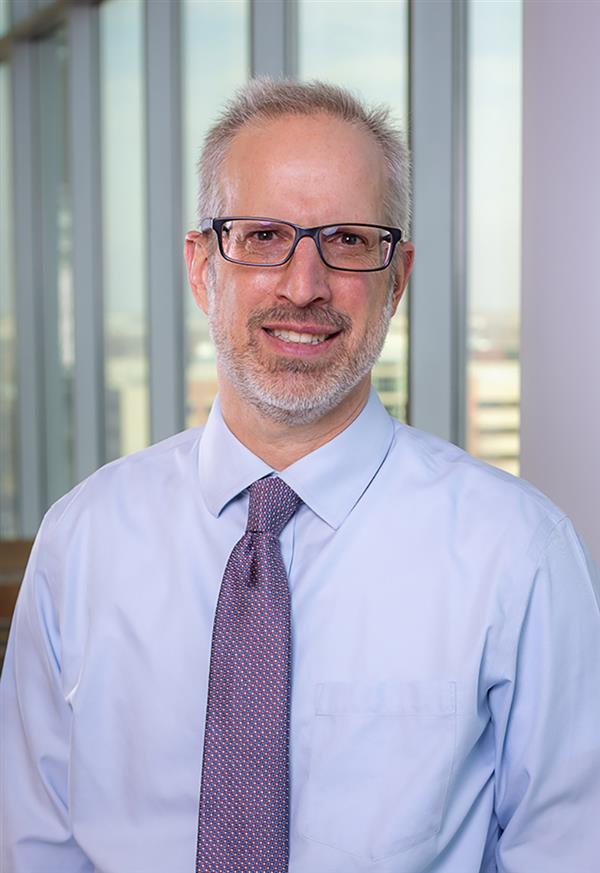
Director of the Glomerulonephritis Program
Dr. Thurman’s primary research interest is the immunologic basis of kidney disease. His laboratory studies the underlying causes of auto-immunity and inflammation; this work has led to the development of several novel anti-inflammatory therapeutic agents. Dr. Thurman’s laboratory has also developed novel radiologic probes to detect and monitor renal inflammation by magnetic resonance imaging and positron emission tomography. He currently oversees the Glomerulonephritis Clinic at the University of Colorado Hospital, which cares for patients with all forms of inflammatory kidney disease, and participates in clinical trials focused on new therapies and diagnostic tools for treating these diseases.
Wei Wang, MD
Research Scientist 
Dr. Wang was trained as an M.D. in China and has joined the division doing medical research since 1996. She has studied in the areas of renal transplantation and acute kidney injury. Most recently, she has joined the polycystic kidney disease focus groups and has been involved in clinical trials aiming at slowing the disease progression of autosomal dominant polycystic kidney disease (ADPKD) in both children and adults. Her primary research interests are mechanisms of disease progression and therapeutic potentials in ADPKD.
Clinical Profile
Mary Weiser-Evans, PhD
Professor 
Co-Director of the Consortium for Fibrosis Research and Translation
Dr. Weiser-Evans co-directs the Consortium for Fibrosis Research and Translation, which is an initiative to positively impact human health by better understanding fundamental fibrosis mechanisms and to serve as a platform for developing transformative therapies that treat fibrotic diseases across organ systems. She also is chair of the Dean’s Research Advisory Committee, which is composed of a group of senior-level School of Medicine research faculty who advise the Dean and Vice Chancellor for Research on matters related to research, a member of the admissions committees for the Pharmacology and Integrated Physiology Graduate Programs, Director of PHCL 7620 Principles of Pharmacology, and Faculty Mentor on several NIH T32 Training Grants.
The Weiser-Evans Lab focuses on research in vascular biology with an emphasis on the role of the vascular smooth muscle cell (SMC) in regulating vessel homeostasis, pathological vascular remodeling, and fibrotic changes reducing vascular compliance. Ongoing studies use in vivo and in vitro approaches, combined with translational studies in diseased human tissues, to define defects in anti-proliferative and anti-inflammatory processes in these pathologies. Results from Dr. Weiser-Evans’s lab demonstrate that SMCs are genetically reprogrammed in situ to generate a pool of resident vascular progenitor cells. The lab is now working to define the functions of SMC-derived stem cells in the maintenance and repair of the vessel wall, as well as to define their role in disease progression so as to determine the therapeutic potential in vascular repair, bioengineering of blood vessels, and the revascularization of ischemic tissues.